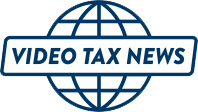

Stay in the know! Sign up to receive the monthly Life in the Tax Lane 10-minute videos direct to your inbox. These free videos for Canadian tax professionals feature rapid-fire discussion of select recent developments in the wonderful world of Canadian tax presented by the Video Tax News Team. By signing up, you also consent to receive marketing messages. Look forward to being in the know about new products, promotions and other updates. We typically send out 1-2 marketing emails a month. You can withdraw your consent at any time.
See our privacy policy for more details
1.877.438.2057
info@videotax.com
© 2025 Video Tax News
All rights reserved.